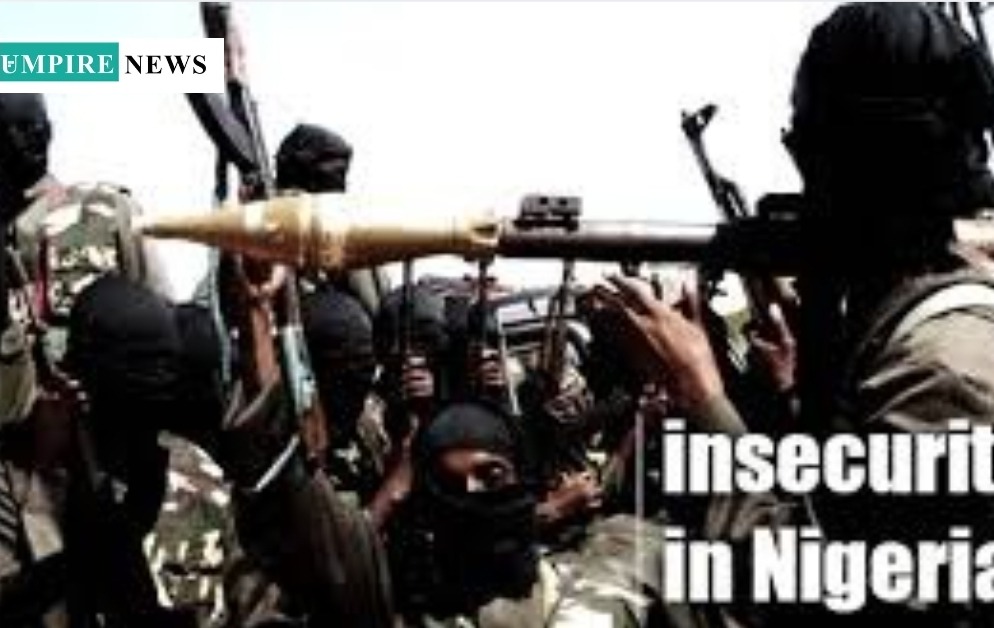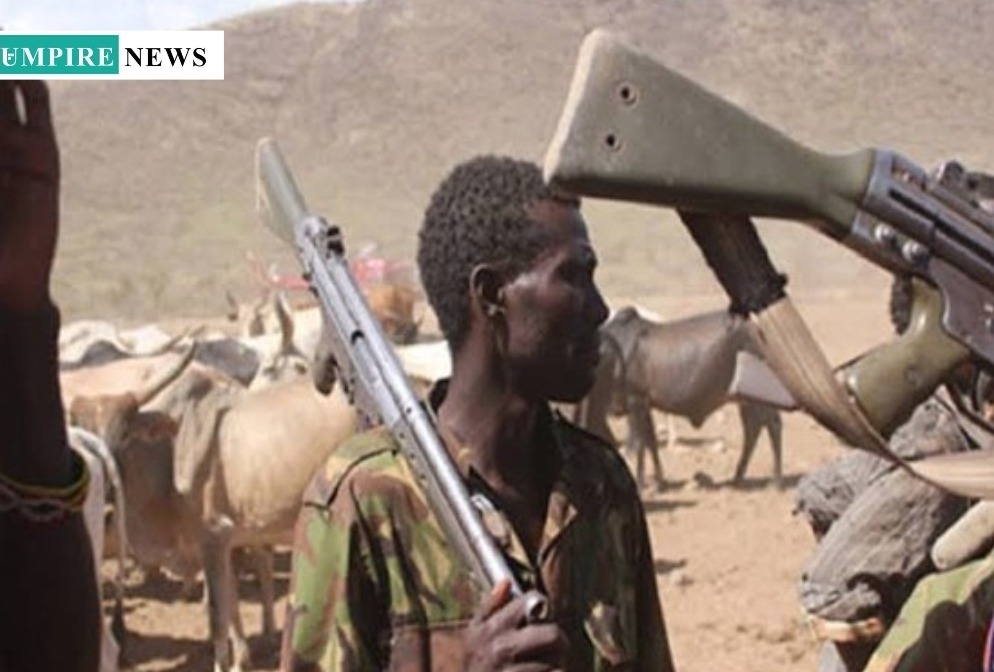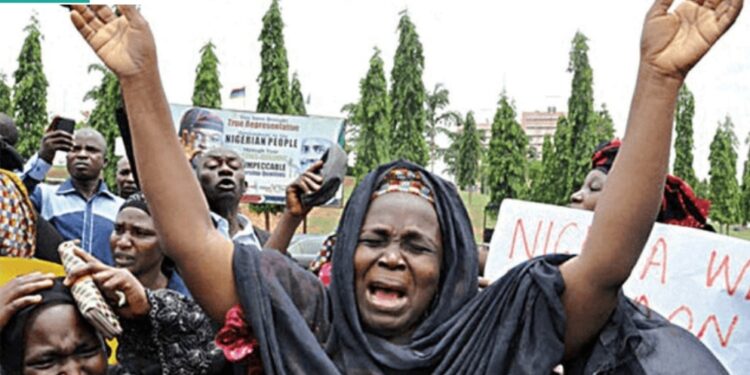The worsening Insecurity in Nigeria poses a serious threat to national stability, economic growth, and the safety of
citizens. The resurgence of Boko Haram in Borno State and the persistent herdsmen attacks on farming communities
across the country need immediate and decisive action from the Federal Government. These security challenges are
not only undermining national development but are also eroding public confidence in the government’s ability to
protect its people.
In recent months, Borno State has witnessed an alarming resurgence of Boko Haram activity. Communities that had
once begun to rebuild their lives are now under renewed threat, with many forced to flee for safety. These insurgent
attacks have grown more daring, targeting not just remote villages but also military formations and key
infrastructures. The re-emergence of Boko Haram, despite over a decade of military operations aimed at neutralizing
the group, suggests gaps in intelligence gathering, coordination among security agencies, and a lack of sustained
socio-economic efforts in the region.

The effects of Boko Haram’s renewed presence are devastating. Hundreds of civilians have been displaced,
agricultural activities disrupted, and humanitarian efforts complicated. Internally Displaced Persons (IDP) camps are
swelling again with families who had only recently returned home. Beyond the immediate human cost, this situation
undermines the broader objective of stabilizing the North East Region, and rebuilding communities. The longer Boko
Haram is allowed to re-establish itself, the harder it will be to reclaim and hold affected territories.
You may also like: Insecurity Halts Oil Exploration in Anambra State
Meanwhile, the crisis involving armed herdsmen continues to rage across central and southern Nigeria. What initially
began as clashes over grazing land has now evolved into a deadly conflict that has claimed thousands of lives,
displaced communities, and destroyed livelihoods. Farmers, particularly in Benue, Plateau, Nasarawa, and parts of the
South West, live in constant fear of attacks. The violence often involves armed groups moving in with sophisticated
weapons, setting homes ablaze, and killing indiscriminately.
This conflict is not only a security issue but also a threat to food security. Farmers are abandoning their lands due to
fear of being attacked, which directly affects agricultural production and contributes to inflation and hunger across
the country. Nigeria’s economy, already under strain from fluctuating oil prices, inflation, and currency instability,
cannot afford the additional burden of a food crisis. If the herdsmen-farmer clashes are not brought under control, the
country risks sliding deeper into economic and social instability.

The Federal Government must act with urgency and precision. Firstly, it is critical to enhance the operational
capabilities of the security forces. The military and police must be better equipped, adequately funded, and properly
motivated to confront the challenges posed by insurgents and criminal groups. Intelligence operations must be
improved to allow for preemptive strikes against terror cells and criminal gangs. Local communities should be more
integrated into intelligence gathering efforts, as their knowledge of the terrain and actors involved can prove invaluable.
Secondly, there must be a coordinated national security strategy that addresses the root causes of these conflicts. In
the North East, efforts should go beyond military operations to include socio-economic development, education, and
de-radicalization programs. Communities must be supported to rebuild, with a focus on job creation, especially for
youths who are most vulnerable to recruitment by terrorist groups. The government must ensure that funds allocated
for North East development are transparently and effectively utilized. Here, the North-East Development Commission has an active role to play.
You may also like: Nigerian Troops Eliminate Key Boko Haram Commander in Borno Operation
In the case of herdsmen violence, a national livestock management policy is long overdue. The Federal Government
should accelerate the implementation of ranching programs, which provide a long-term solution to the recurring
conflict between herders and farmers. The National Livestock Transformation Plan, though initiated years ago, has
seen limited progress due to political and logistical challenges. This must be urgently revived, with states and local
governments brought into active partnership.

There should be firm enforcement of laws against illegal arms possession. The fact that non-state actors, including
herdsmen, are able to acquire and use sophisticated weapons points to a serious failure in arms control and border
management. The Nigerian Customs Service and other relevant agencies must intensify efforts to secure the
country’s borders against arms smuggling.
Public trust in government efforts to address insecurity is at an all-time low. Citizens across regions feel abandoned
and vulnerable. This sense of neglect often breeds support for self-help measures, including the rise of regional
vigilante groups. While these groups may provide short-term relief, they also pose a long-term threat to state authority
if left unchecked. The Federal Government must reassert control by ensuring that official security agencies are effective and responsive.
You may also like: NAF Strikes Deal Crushing Blow to Boko Haram in Mandara Mountain
Leadership is critical in times of crisis. Nigerians need to see clear commitment from the highest levels of government. Presidential directives must translate into concrete actions, not just rhetoric. The National Assembly must also rise to its constitutional responsibility by providing the necessary oversight, reviewing outdated security laws, and ensuring accountability for funds allocated to defense and security.
The international community can also be a valuable partner. Nigeria must strengthen collaborations with neighboring countries and international allies to combat cross-border terrorism and trafficking. Regional bodies like the Multinational Joint Task Force (MNJTF) should be empowered with resources and clear mandates. The war against Boko Haram and other terror groups cannot be won in isolation; it requires regional coordination and sustained international support.
The human cost of inaction is simply too high. Every day that passes without decisive government intervention sees more lives lost, more families displaced, and more damage done to the country’s already fragile social fabric. Beyond the statistics are real people—children who can’t go to school, parents who can’t provide for their families, and entire communities robbed of peace and dignity.
The Federal Government must recognize that insecurity is no longer a regional problem but a national emergency. The time to act is now, with clarity of purpose, unity of command, and a genuine commitment to protecting every Nigerian life regardless of geography, ethnicity, or religion. The failure to decisively tackle Boko Haram’s resurgence and the escalating farmer-herder crisis risks plunging Nigeria into deeper chaos. The responsibility to prevent that falls squarely on the shoulders of the president.



































